Ethnic diversity in the workplace isn’t only a moral issue, but one with huge ramifications for business. Yet some of the buggest names in fmcg continue to drag their feet when it comes to race.
Tone deaf. Trash. Glaring mis-step. Some of the more diplomatic reactions to a 2017 Pepsi advert that saw white supermodel Kendall Jenner chuck her wig at a black woman, strut off through a protest and crassly co-opt imagery from the Black Lives Matter movement to sell soda. In less than a day the £40m ad was removed, with a further rollout of the campaign halted. The brand admitted it had ‘missed the mark’.
Clearly. It wasn’t an isolated incident in fmcg either. In the months that followed, a Kellogg’s cereal box featuring ‘yellow’ corn pops larking about while a ‘brown’ corn pop cleaned up their mess was pulled up for ‘teaching kids racism’, while Dove hastily backtracked on a Facebook video that saw a black woman seemingly strip off her race to reveal a white woman beneath.
All were huge errors in judgement that drove wedges between brands and any consumers with a modicum of cultural sensitivity, and all might have been avoided were companies to address the glaring lack of diversity behind the decisions to push ahead. “If you had a diverse team around the table, someone would’ve said ‘hell no’ and saved them a whole load of trouble,” says Sandra Kerr, national campaign director for Business in the Community’s Race Equality campaign. Days after the Pepsi outcry it was reported that all six ‘creatives’ behind the ad were white. If that hadn’t been the case, “it would never have got out” says Kerr. “That’s why diversity in business is so powerful.”
In her 2017 review, Baroness McGregor-Smith concluded the potential benefit to the economy if black and minority ethnic groups (BAME) were fully represented in the labour market would be £24bn per year, or 1.3% of GDP. Then there are the stacks of research papers that show companies with a diverse senior leadership team across both race and gender are more profitable and higher performing than those that aren’t.
“I’m still shocked that when I go to retailer HQs you just don’t see any black people”
You’d reasonably expect, then, that UK fmcg and retail is well on the case when it comes to ensuring ethnic diversity in their own businesses. Anything else would be madness. Right?
Turns out finding out either way is a Herculean task. Though publishing information on the representation of women was mandatory as of April 2017, no such requirement exists on race. When The Grocer approached the 20 leading UK retailers and suppliers, only nine said they currently tracked the ethnic background of staff, seven saying they opted not to and three failing to provide any response at all. Of those nine, only six would share some insight on their data.
From publicly available information, we do know that Ash Amirahmadi, the newly appointed UK managing director at Arla Foods, is the only BAME boss at these top 20 companies (collectively responsible for billions in sales and employing hundreds of thousands of people in the UK alone). Across the boards of eight major supermarkets (Aldi and Lidl do not share this information publicly) only seven members are from BAME backgrounds, out of 80 people. Across the 10 largest UK suppliers this figure is 10 - less than 10% of the 103 total.
Of these 18 businesses, eight have not a single person from a black, Asian or ethnic minority background with a seat at the top table. And this despite the fact that one in eight people of working age in Britain comes from a BAME background, according to the McGregor-Smith review, which was published late last year.

What is intersectionality and why does it matter?
Be it gender, race or sexuality, each strand of diversity is individual and needs to be treated as such. It simply isn’t enough for a company to brag of an inclusive culture and then introduce policies purely to address poor levels of gender diversity, for example.
Coupled with that is the idea of intersectionality, where people may experience two or more sets of challenges based on two or more different strands of diversity. A BAME woman, for example, may face unconscious bias based on both her race and her gender. Similarly, a gay man from a BAME background. Companies recognising this is “really important,” says Claire McCartney, advisor to the CIPD, with “not enough focus or research” around intersectionality.
“It’s not just BAME vs gender or LGBT, it’s now multiple identities,” adds diversity expert Stephen Frost. “Black women, for example, are one of the most marginalised talent groups. If the decision maker is a straight white man, then a minority woman is probably even less included than a white woman, and we start to get a hierarchy of disadvantage.”
Lack of diverse leadership
At the very least, then, the sector is failing miserably to recruit or progress its BAME staff to the top positions within its business, a fact that prompted The Black Farmer founder Wilfred Emmanuel-Jones to write to retailers himself a few months ago to ask what they planned to do to tackle this glaring gap.
“I’m still shocked that when I go to retailer HQs you just don’t see any black people,” he says. “If you do they tend to be the security guard or the cleaner. How can people working in those organisations sit there and not think there’s something wrong about this?”
“At the senior level you’d be lucky if you found any black or Asian people based on what I’ve seen,” adds Kerr. “There’s a real issue. Just peppering at the front-line service is not enough. It needs to get into the engine, where decisions are made.”
Without more granular data it’s impossible to know if this gross under-representation of BAME experience at the top doesn’t also extend down the businesses too. A 2017 study by the Chartered Management Institute across HR teams at 24 top UK businesses found only 17% saw their company’s performance on racial diversity in the management pipeline as ‘good’ while 38% rated it as poor. And some experts believe engagement in retail likely fares far worse than other industries.
“When we look at how we engage with sectors, retail isn’t up there with finance or legal firms,” says Kerr. “We compile a list of the best employers for race and last year I went to the BRC and tried to talk them into telling members it wasn’t that scary. We still only had Sainsbury’s and John Lewis Partnership enter (both of which made the cut).”
“We have seen straight white men become more accepting of LGBT people and women than they have of ethnic minorities”
In fact, despite The Grocer directly contacting all 20 leading fmcg and retail businesses (some numerous times) with a request to speak with a representative on the topic for this piece, not a single spokesperson was put forward, with either an anodyne statement, a decline to comment or silence provided instead.
Fuelling this laissez-faire approach to racial diversity could be our current preoccupation with gender, believe some experts. “It absolutely has taken a backseat to gender, no two ways about it,” says Nic Hammarling, head of diversity at Pearn Kandola. “Gender is one of those topics which people feel significantly more comfortable talking about.”
Findings by the CMI back that up. In the same report 84% of HR personnel said gender diversity within the management pipeline at their organisation was either ‘very good’ or ‘fairly good.’ Not a single one interviewed felt gender diversity was poor.
“There are several reasons, but they include the comfort levels of the majority white decision makers to let others in,” believes global diversity expert Stephen Frost. “In short, we have seen straight white men become more accepting of LGBT people and women than they have of ethnic minorities.”
The experience of Steve Baggi, co-founder of recruitment firm Green Park, reflects that. “When we sit down with companies and they ask for help on their diversity they nearly always start with gender. And maybe that’s the right place to start but you can’t fix inclusiveness by focusing on just one strand.”
What fmcg is doing about ethnic diversity
The top 10 retailers
The top 10 suppliers
So, how do you start the conversation around race? “There are two camps,” believes Kerr. “Those that are proactive, and those that want more evidence. That’s why particularly with ethnicity you have to start with ‘why’. The positive economic impact, the fact diversity is good for the bottom line, the £24bn annual boost to the UK economy by getting disparities right on race, better decision making… You start with that.”
And so we will. According to Baroness McGregor-Smith, who led the review into ethnically diverse workplaces in 2017, “inclusive organisations, which attract and develop individuals from the widest pool of talent, consistently perform better. That is the business case.”
The benefits of racial diversity, reported participating businesses, include “attracting staff from a wider talent pool, improved employee engagement, more effective teams, increased innovation and improved understanding of their customer base leading to higher customer satisfaction”.
As well as being far more likely to avoid the calamities of cultural insensitivity that have plagued some household names in recent months, of course.
Then there are the cold hard facts. In January the latest global research from McKinsey found that companies with the most ethnically diverse executive teams were 33% more likely to outperform peers on profitability - an even bigger boost than for gender.
“The business case for diversity and inclusion is clear: organisations that are diverse and inclusive are more successful than those that are not,” sums up Paul Wolfe, SVP of human resources at Indeed. “The challenge for employers is bringing about change.”
“Improving that will need investment like any other area of the business and if you were implementing a new IT system you’d want to know the ROI over three to five years,” adds Baggi. “We can track that. Until we stop talking about diversity on an emotion-led basis and more from the fact that diverse businesses perform better then when things get tight it’s one of those things that might fall away.”
At the moment some businesses “don’t see it as a pressing issue,” says Leila McKenzie, MD at recruitment firm Leila McKenzie Associates. “But if you look at the statistics this is more than celebrating difference, it’s reaching that degree of insight where organisations completely appreciate the advantage of diverse thought leadership and that impacts the profit line. It is a fact.”
One that should convince businesses dragging their feet that diversity matters, economically, commercially and morally. So how can they best begin to address diversity and inclusion (D&I)? Well, it starts with a conversation. Perhaps an awkward one.
For McKenzie “the majority of clients I meet are middle-aged white males. That’s fine, but broaching diversity as a mid-30s Chinese female can be intimidating. You do have to tread carefully as some people react in different ways. It’s not a conversation you can have in a few minutes.”
Reluctance to talk
“There is an element of people being worried they’ll say things that are politically incorrect and I think that can cause diversity and inclusion such horrendous problems,” says Hammarling.
“We need to move to an environment where people can say what’s on their mind and be open to challenge. There’s a reluctance to get stuck in and talk about the topic openly.”
Once you have, though, the next step is an internal audit of how ethnically diverse - or not - the business is. After all “if you can’t see where you are now how do you know where to move from?” says Kerr, who isn’t surprised at all to hear less than half of the leading fmcg companies approached currently tracked ethnicity among their staff.
“We have that problem all the time, where we don’t have the data. We encourage people to capture the data so you can see if you have a cliff or glass ceiling or something else. The data will show you where that starts and where you can do an intervention to unblock that talent.”
“We need to move to an environment where people can say what’s on their mind”
She cites employee engagement surveys too, common among retailers, as one possible avenue for collecting information to split by different ethnic groups which “will tell you a lot about what’s going on with a workforce by way of satisfaction levels, engagement levels and appetite for progression”.
Armed with this companies can then look to make change, both at a recruitment level and later on, where the barriers that block progression up the ladder come into play.
Notoriously fast-paced, the food and drink sector can be particularly vulnerable to putting barriers up to BAME applicants at the recruitment stage, believes Hammarling. “Because a lot of recruitment at junior levels happens en masse and there’s a relatively high turnover, you focus on having selection processes that are quite quick and so sometimes there are very high levels of adverse impact.” Adverse impact is where a white candidate ends up “disproportionately more likely” to get the job than a BAME applicant.
Recruitment or corporate imagery featuring only white people would be an obvious example, says Claire McCartney, diversity and inclusion adviser for the CIPD. “Immediately that could signal to someone it might not be the organisation for them.” Companies should look at which channels they use for recruitment and where they focus their outreach, check language and look to include open statements of their support for D&I on recruitment materials, she advises.
Scrutinising shortlisting processes is important too. This isn’t necessarily about positive discrimination either, insists McKenzie. “It’s always about the best candidate getting the job, always. But if those candidates from a diverse background are not included in the initial ‘market map’ for the longlist then how are you ever going to level the playing field?”
When recruiting for senior roles, businesses need to broaden their search criteria. “At a senior level, if a client says they want a CFO but they need to come from a top five fmcg player then it’s going to be difficult to introduce diverse candidates into the population,” says Baggi. “They need to look at transferable skills or adjoining markets.”
Unconscious bias
Once candidates have reached the interview stage, actively identifying and addressing unconscious biases is crucial, adds Hammarling.
“We know currently that there are around 175 different types of unconscious bias and what a specialist can do is observe a meeting to look at how the evidence is being used, how decisions are being made and how people are assessing potential for risk.
“We tend to interpret difference as higher risk and that allows us to pinpoint in that promotion panel what the biases at play are, if any, and what needs to happen to address that.”
One of the most common biases is homophily, she points out, where we exercise an in-built preference for people like ourselves, across skin colour, gender or even personality style. Where someone is different “we’re more likely to attribute their successes to external factors, such as ‘he was lucky with those suppliers’ or ‘he had a good team around him’.” Conversely if a candidate reflects our traits “we’re much more likely to attribute those successes to them personally, ie ‘they’re good at their job’.”
This can be even more pronounced at the top end of the food chain where “there are leadership prototypes that kick in”, she warns. “We all carry these with us, the people that we unconsciously think are the best fit for a role and because of social programming and who has historically completed those roles typically, especially in the UK, they tend to be white men.”
“Of course whilst this might start to explain ‘why’, it doesn’t justify the situation,” says Frost. “Indeed, it’s rather damning that in an industry whose customer base is the entire population, and in an industry that is always innovating in different cultural and food items, there is not more innovation and cultural inclusion at the top where the decisions are actually made.”
Even more so because once these biases are picked up “change can be quite quick” adds Hammarling. “We each have different motivations around the extent to which we want to engage in tackling unconscious bias, especially around skin colour. For most people, not everybody, but for most people once they are aware they not only have an unconscious bias but also that it is affecting their decisions they’re motivated to do something about it.”
“Britain is such a diverse community but the companies providing us with our essentials don’t reflect that”
Addressing recruitment processes alone won’t be enough though. “We can acquire talent into organisations but unless we also help them fix issues internally we’re never really going to move on,” says Baggi, with just as many unconscious biases and barriers at play when it comes to internal promotions.
CIPD research found black and Asian people are less likely to be satisfied with their career progression to date, says McCartney, with many reporting discrimination from white British workers and left feeling they need to change their behaviour to fit in. “That shouldn’t be the case,” she says. “What would be helpful is having more transparent career paths, mentors, and more visible senior role models. There’s an awful lot that organisations can do and need to do.”
“Encouragement is really important too when there are no role models,” adds Kerr. “Without any role models or people who have gone before you, you have to be very confident to say ‘I’ll be the first one’. That’s where line manager encouragement could really help and if they had it as a performance objective then it would create a major shift.”
Crucially, this inclusive culture must come from the top. “Leadership at the top has to be responsible on some level because if nobody cares, why should we care?” says Kerr. “Leaders saying this matters is really important.” If they don’t, political leaders will undoubtedly wade into the mix. Already voluntary targets have been handed down to FTSE 100 companies following a 2017 review of diversity by Sir John Parker, who has told firms to end all-white boardrooms by 2021 after discovering a mere 85 of 1,050 director positions were held by ethnic minorities.
Mandatory reporting of internal data could be next, believes Baggi. “The race pay gap is coming. There’s pressure on government to do that and it’s only a matter of time before it happens.” Once it does, the industry’s potentially dire record on tackling ethnic diversity thus far will be laid bare.
“At the moment not enough people know” of the problem, says Emmanuel-Jones. “The moment they do - and it only takes a little spark - then you’ve got a problem on your hands. Britain is such a diverse community but the companies providing us with our essentials don’t reflect that. Any organisation that does not reflect their community is heading for disaster.” Perhaps far sooner than they think.

Entrepreneurism: a more level playing field?
With people from BAME backgrounds woefully under-represented in the boardrooms of UK fmcg companies, there is evidence that more and more are opting to exercise their entrepreneurial flair instead. Though government data shows currently only 5% of UK small businesses are majority-led by someone from an ethnic minority group that dynamic is shifting, with people from ethnic minority backgrounds now twice as likely to start their own business in the UK as their white peers, according to new research from the Global Entrepreneurship Monitor.
The findings don’t surprise Geeta Sidhu-Robb, the founder & CEO of food delivery service Nosh Detox, which launched in 2008. “When you open up your own business you don’t suffer from prejudice, glass ceilings or a lack of support networks which can be vital in the politics of many large organisations, and which stop you getting ahead,” she says.
Not that entrepreneurship doesn’t come without its own share of prejudice, she warns. “Primitive attitudes towards women of ethnic diversity, the lack of exposure to successful and ethnic women along with the narrow-mindedness of senior heads of big businesses, presented constant unnecessary obstacles when getting my business off the ground.
“Despite having a background in law, I was often not taken seriously at first. These issues predominantly stem from the infrastructure and other organisational processes in companies.”
Inadequate access to funding was highlighted as one such structural barrier in the Ethnic Minority Businesses and Access to Finance report commissioned by Nick Clegg back in 2013 and the government has taken steps since to redress the balance. Last week it announced that more than 11,000 BAME entrepreneurs had received government-backed start-up loans since 2012 - a mechanism introduced directly to tackle inequitable funding opportunities - with more than 55,000 businesses supported, £400m of finance provided and 66,000 jobs created.
What is fmcg doing about ethnic diversity?
This information is correct as of the time of publication - 31/08/2018
The top 10 retailers
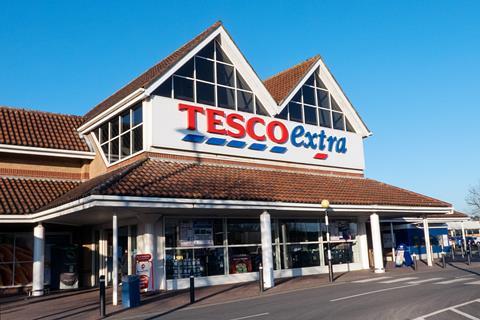
Tesco
Does it track ethnicity? Yes.
Will it share the data? No.
Proportion of board BAME? 0%
Proportion of executive committee BAME? 0%
Further comments? A spokeswoman says “inclusivity and creating a culture where everyone has equal opportunity remains integral to our business” with “strong policies and guidelines across the group to effect this”.
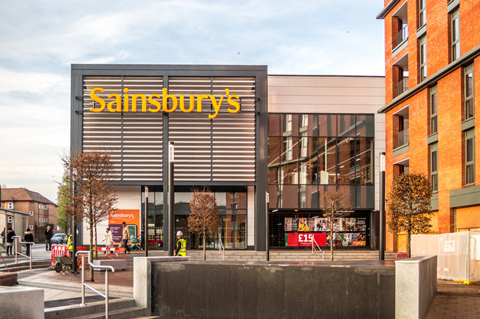
Sainsbury’s
Does it track ethnicity? Sainsbury’s provided no response.
Will it share the data? See above.
Proportion of board BAME? 10%
Proportion of executive committee BAME? 0%
Further comments? Sainsbury’s provided no response.
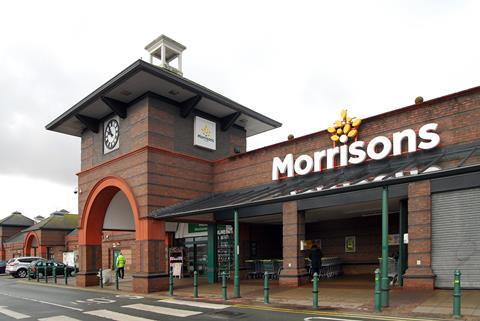
Morrisons
Does it track ethnicity? Yes.
Will it share the data? No.
Proportion of board BAME? 11%
Proportion of executive committee BAME? 0%
Further comments? Morrisons says “we have targets built into our talent programmes to increase BAME and non-British national representation”. In addition the retailer has a diversity and inclusion working group “that defines our future plans based around culture and ethnicity as well as other areas like LGBT+ and disability”.

Asda
Does it track ethnicity? Asda provided no response.
Will it share the data? See above.
Proportion of board BAME? Not available.
Proportion of executive committee BAME? 0%
Further comments? Asda provided no response.
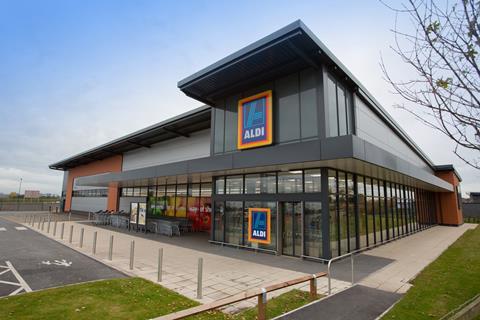
Aldi
Does it track ethnicity? No.
Will it share the data? Not available.
Proportion of board BAME? Not available.
Proportion of executive committee BAME? Not available.
Further comments? “At Aldi we value diversity above all else. Visit one of our stores and you will see what a diverse company we are. Our employees come from a wide range of backgrounds and ages.”
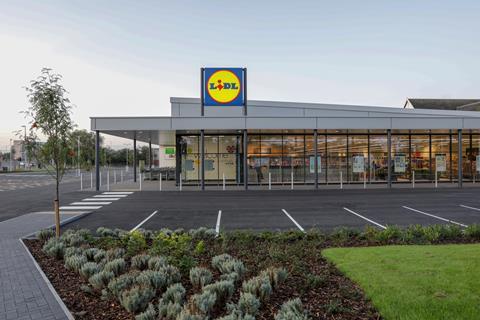
Lidl
Does it track ethnicity? No.
Will it share the data? Not available.
Proportion of board BAME? Not available.
Proportion of executive committee BAME? Not available.
Further comments? “At Lidl UK we are proud to support a diverse workforce, with 118 different nationalities within the company. We are committed to promoting diversity in the workplace and have a task force in place who are dedicated to implementing our diversity and inclusion strategy.”
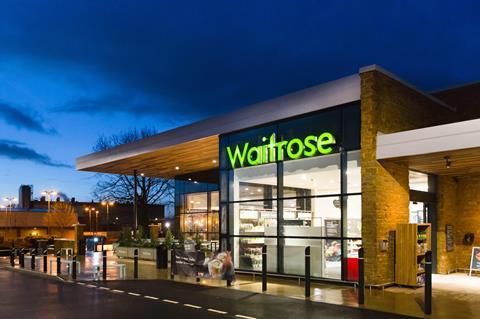
Waitrose
Does it track ethnicity? Yes.
Will it share the data? Yes - 15.3% of its partners across the John Lewis Partnership are from BAME backgrounds. What’s more, as of January 2018 9% of people in management positions are from BAME backgrounds.
Proportion of board BAME? 0% (JLP)
Proportion of executive committee BAME? 0%
Further comments? “We have taken various steps including unconscious bias training and our UNITY network which champions BAME partners’ careers.”
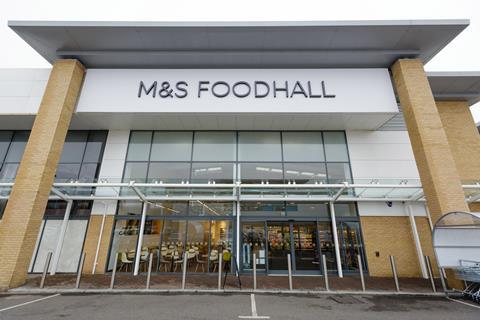
Marks & Spencer
Does it track ethnicity? Yes.
Will it share the data? Yes - 11% of its staff overall are from BAME backgrounds, and 13% of managers.
Proportion of board BAME? 10%
Proportion of executive committee BAME? 10%
Further comments? As part of its Plan A commitments, M&S “aims to have at least 15% BAME representation on the M&S senior management team by 2022 and by 2025 we want M&S workforces to reflect the diversity of each region in which we operate”.
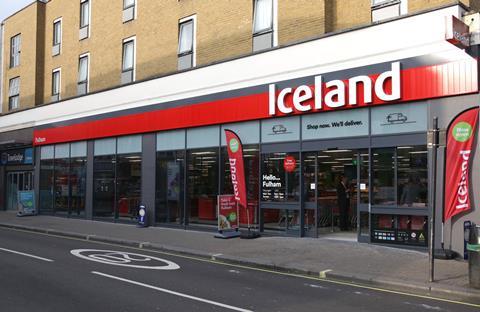
Iceland
Does it track ethnicity? No.
Will it share the data? Not available.
Proportion of board BAME? 12.5%
Proportion of executive committee BAME? Not available.
Further comments? Iceland provided no further comments.
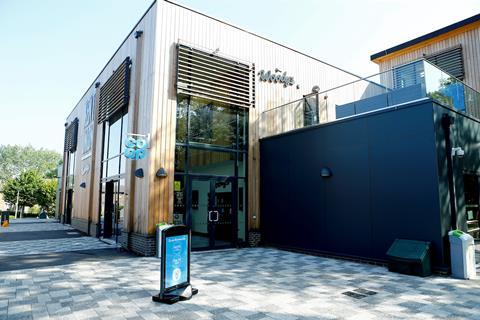
Co-op
Does it track ethnicity? Yes.
Will it share the data? Yes - 10% of staff are from BAME backgrounds.
Proportion of board BAME? 15%
Proportion of executive committee BAME? 0%
Further comments? “We have 72 colleagues who champion diversity across our business. They provide support and guidance to colleagues around all issues of diversity.”What are companies doing about ethnic diversity?
The top 10 suppliers
This information is correct as of the time of publication - 31/08/2018

Associated British Foods
Does it track ethnicity? Answer not provided.
Will it share the data? See above.
Proportion of board BAME? 0%
Proportion of executive committee BAME? Not available.
Further comments? “ABF celebrates BAME diversity and takes it seriously across all our businesses. Given our global nature, the proportion of our senior staff from BAME backgrounds differs greatly by country. Across the UK and Europe we have formal initiatives in place to help foster BAME diversity.”

2 Sisters
Does it track ethnicity? Yes.
Will it share the data? Yes. The breakdown of colleagues is 10% from BAME backgrounds, 53% from non-BAME backgrounds and 37% of colleagues elected not to answer or “we have no current recording for”.
Proportion of board BAME? 0%
Proportion of executive committee BAME? 40%
Further comments? “2SFG has created a wide diversity strategy which encompasses BAME representation. We have a number of initiatives which we believe will help champion diversity.”
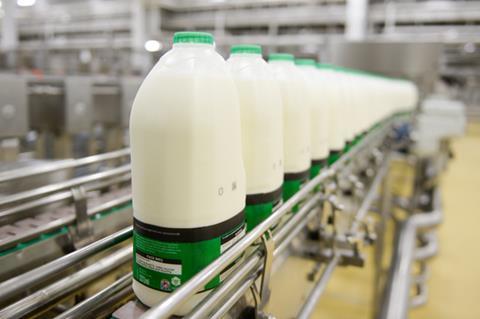
Arla*
Does it track ethnicity? Arla declined to provide a response.
Will it share the data? See above.
Proportion of board BAME? 0%
Proportion of executive committee BAME? 0%
Further comments? Arla declined to provide any response.

Unilever
Does it track ethnicity? Answer not provided.
Will it share the data? See above.
Proportion of board BAME? 45%
Proportion of executive committee BAME? 45%
Further comments? “At Unilever we’re committed to an inclusive culture, respecting the contribution of all employees regardless of gender, age, race, disability or sexual orientation. Our major focus has been on building a gender-balanced workforce, and we are proud that 47% of our management are women.”

Coca-Cola European Partners*
Does it track ethnicity? Yes.
Will it share the data? No.
Proportion of board BAME? 0%
Proportion of executive committee BAME? Not available.
Further comments? “We are committed to ensuring a diverse culture within the business as part of our dedicated Inclusion and Diversity strategy, which is reflected in a number of HR and talent acquisition initiatives.”

Bakkavor
Does it track ethnicity? Bakkavor provided no response.
Will it share the data? See above.
Proportion of board BAME? Not available.
Proportion of executive committee BAME? Not available.
Further comments? Bakkavor provided no response.

Mondelez*
Does it track ethnicity? Answer not provided.
Will it share the data? See above.
Proportion of board BAME? 0%
Proportion of executive committee BAME? 0%
Further comments? “Our focus is to build an inclusive and diverse workplace. We have recently introduced a number of programmes to promote diversity. All of our hiring managers have received unconscious bias training, and we have also established regional and global Diversity and Inclusion Councils.”

Nestlé*
Does it track ethnicity? Yes.
Will it share the data? No.
Proportion of board BAME? 21% (global business)
Proportion of executive committee BAME? 8% (global business)
Further comments? “We have several cultural diversity initiatives in place on a global level, but none with a particular focus on BAME.”

Princes
Does it track ethnicity? Yes.
Will it share the data? Yes. 54% of staff are from BAME backgrounds.
Proportion of board BAME? 60%
Proportion of executive committee BAME? 33%
Further comments? “Princes is committed to providing equal opportunities in employment. Our equal opportunities policy states that no one should be unfairly disadvantaged at work or applying for work. We do not currently have specific commitments or initiatives on BAME diversity.”
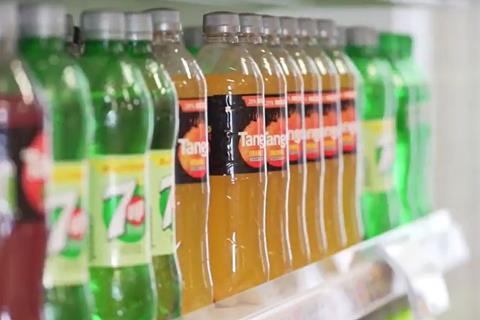
Britvic*
Does it track ethnicity? No.
Will it share the data? See above.
Proportion of board BAME? 11%
Proportion of executive committee BAME? 0%
Further comments? “As a consumer-focused organisation that operates in or exports to over 50 countries, we believe our workforce should be a reflection of the diverse consumers and communities we serve. We are committed to providing equal opportunities to all and creating a working environment that appeals to all.”








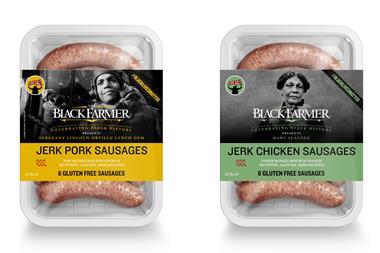

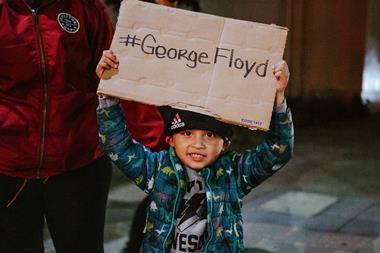

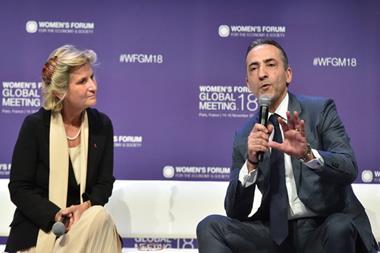






No comments yet